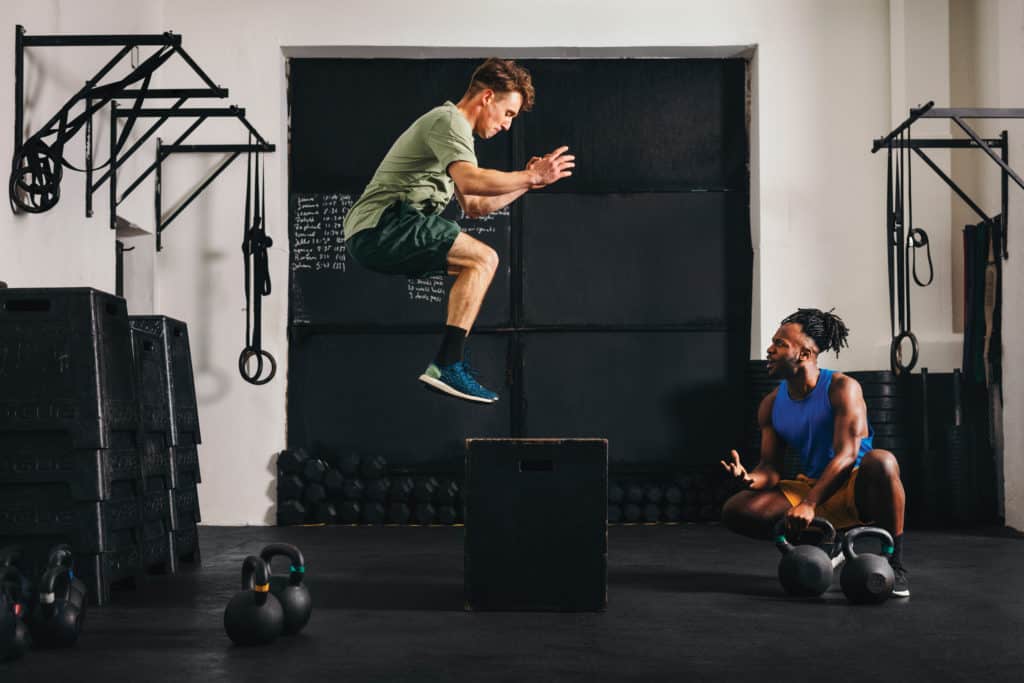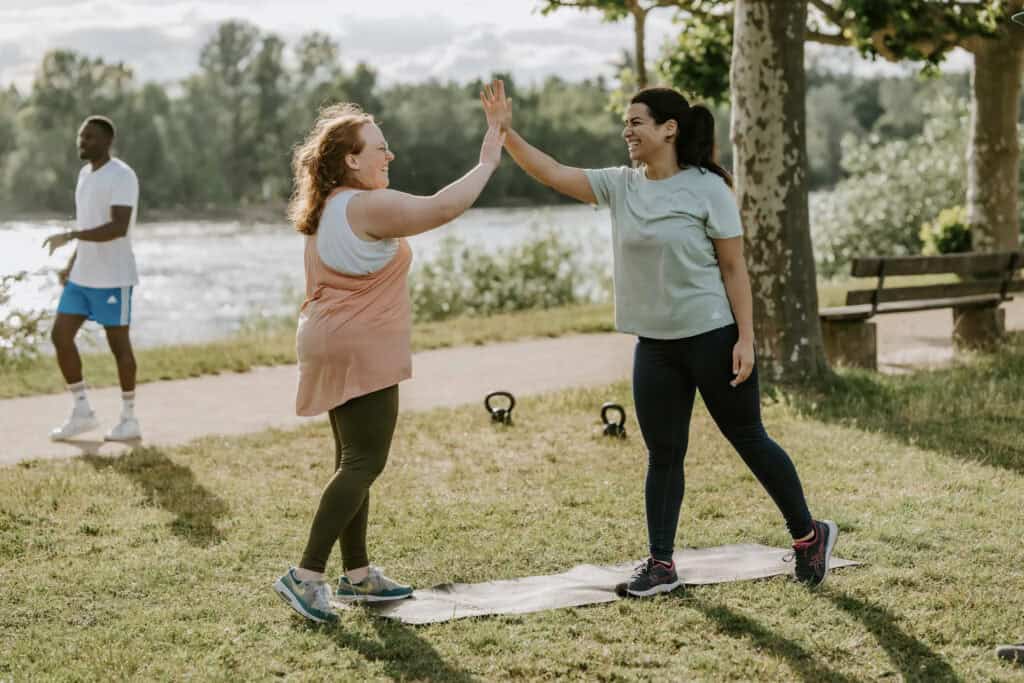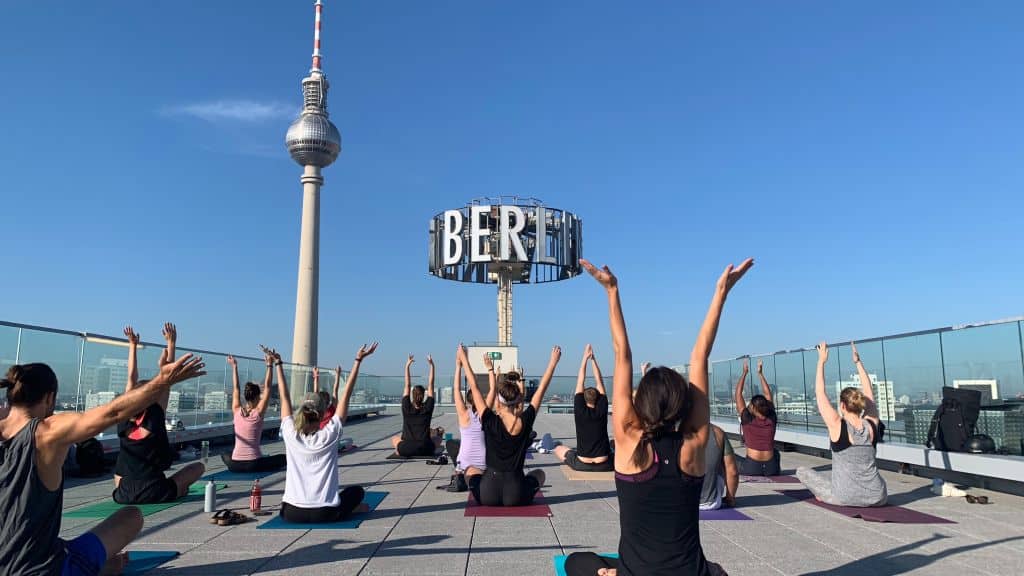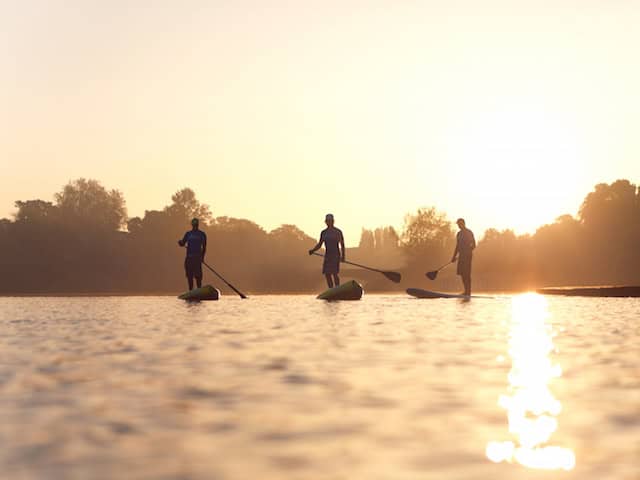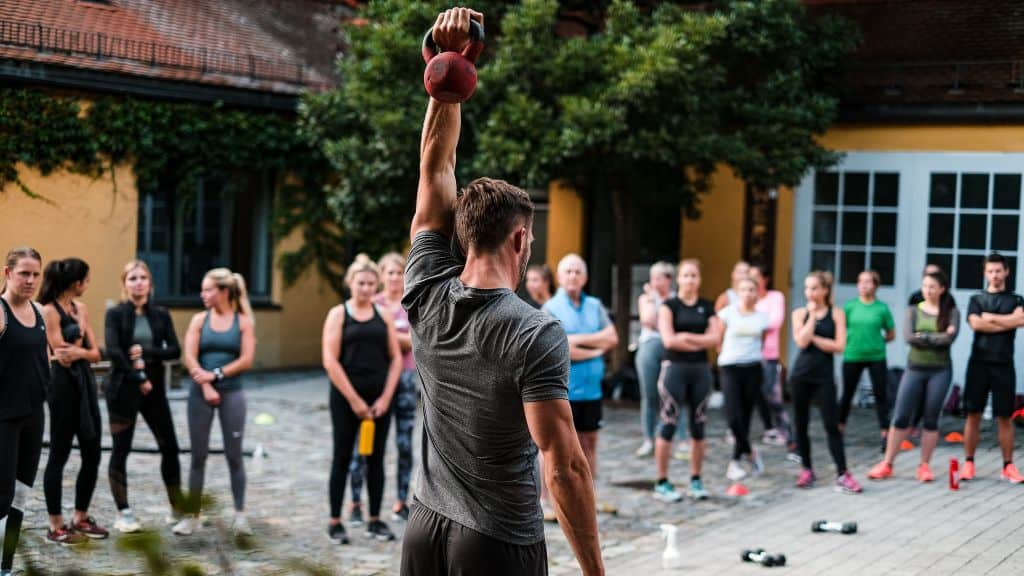Every spring, it’s the same: your eyes water and itch, and the sneezing never stops – you probably haven’t missed the pollen season either. You have finally built up your sports routine and are now asking yourself: Can I continue to be active and do sports with allergies?
Find out in the article which tips and tricks you can use to do outdoor sports, why rainy weather is your new best friend, and how sports can improve your allergy symptoms.
Important: This article is intended only as informative support and cannot replace professional help. Therefore, seek medical advice if you are unsure.
Can I do sports with allergies?
The good news right away: Not only can you do sports with allergies, but you can also reduce your hay fever symptoms by being active.
Prevalence of hay fever in Germany
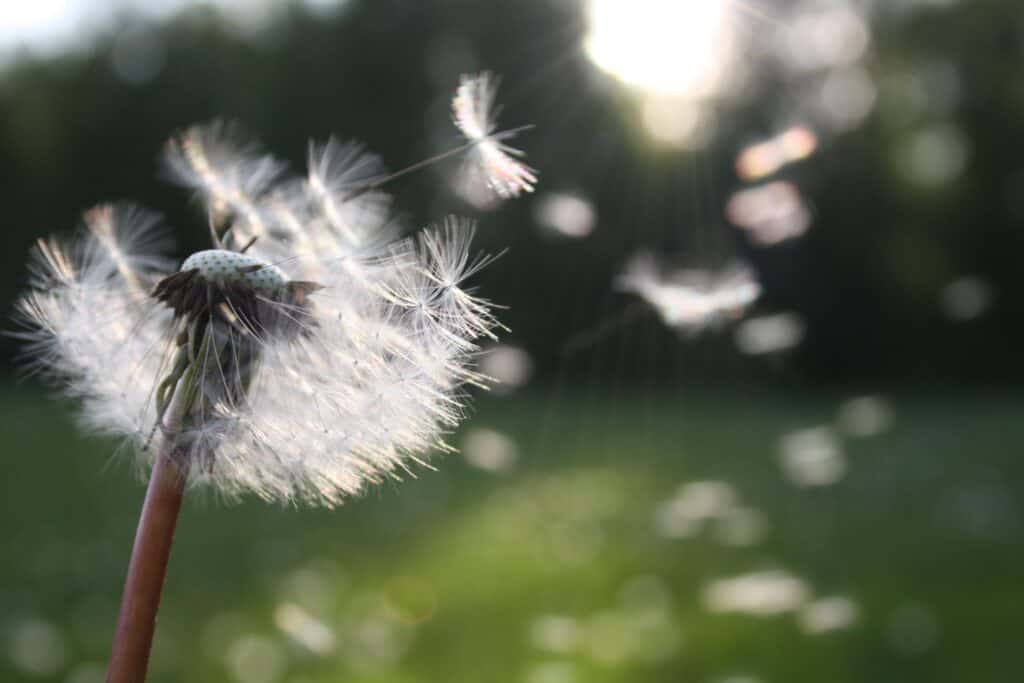
In Germany, hay fever is one of the most common allergies. A survey of more than 20,000 adults by the Robert Koch Institute shows that almost every third person in Germany suffers from an allergy such as hay fever. At 34.7 percent, women were affected significantly more often than men at 27.0 percent. Due to global warming, the pollen load is even more intense every year.
Hay fever and sports
Hay fever generally increases physical stress. Sports can help make coughing attacks associated with allergies easier to manage. In addition, the increased breathing rate during exercise improves blood flow to the airways and loosens stuck mucus from the bronchial tubes. For some people, outdoor exercise even acts like desensitization, “hardening” the immune system and adapting it to pollen exposure.
Exercise with allergies: What happens in the body with hay fever?

With an allergy, your immune system overreacts to a foreign substance, in this case, pollen. Your body perceives what is harmless to others as extremely unpleasant and therefore fights against it. Symptoms such as itching or tearing of the eyes, sneezing, and rhinitis due to irritation of the mucous membranes are very common signs. Sports with a severe allergy can also lead to allergic reactions in the respiratory tract.
Typical symptoms of pollen allergy
The symptoms of allergy can vary individually and depend on the intensity of the allergy. Typical signs that are particularly common are:
- Burning, itching, and watering eyes
- Runny, stuffy or tingling nose
- Constant sneezing or sneezing irritation
- Difficulty breathing
- Cough, sore throat
- Tiredness and sleep disturbances
Doing sports with allergies – is it dangerous?
Generally, we recommend that you get tested by an allergist before exercising. According to medical experts, sports are typically recommended for your health if you do not suffer from extreme allergies. Apart from the well-known benefits such as preventing obesity, high blood pressure, and much more, it also improves your lung function. And this, in turn, can help you manage your allergy symptoms. Of course, it’s important to know your exercise limits and adjust your training to avoid chronic lung problems. Ideally, you should consult a doctor if you need more clarification. We have compiled some tips for you further down in the article, which you should consider if you do not want to give up exercising in the fresh air.
The best sport for the pollen season
The choice of how you do fitness plays a significant role in the hay fever season. Above all, sports where you can avoid excessive contact with allergens such as pollen and grasses, are best suited. But outdoor training is also possible! Here, however, it depends on the preparation. Endurance sports can be great for prevention! Besides strengthening the heart and circulation, it trains your respiratory muscles. It is best to start slowly with a sport and practice it regularly. This way, you will gradually get used to the effort, and over time you can increase the load.
Which sports should I avoid with hay fever?
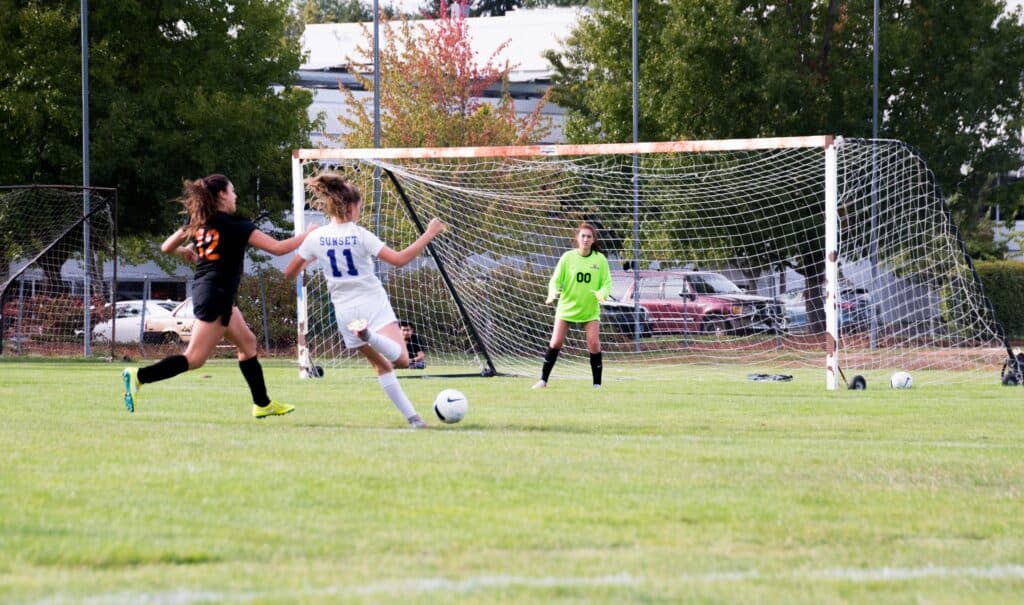
As an allergy sufferer, you can continue to practice pretty much any sport. However, there are a few things to remember: the effort is higher because of the pollen load in the lungs. So definitely adjust the intensity if you are doing very active sports outside, like tennis, soccer, or HIIT. Ideally, move your workout indoors. However, if you do want to work out outside, it’s important to manage the symptoms and only work out for as long as it feels good. Above all, pay attention to your breathing. Pollen season can also be a good time to try a new sport or find a complementary sport. For example, how about these:
- Swimming and strength training
- Start meditating
- Start yoga or Pilates
- Start with fitness
- Bouldering for beginners
- Start with martial arts
- Sauna after sport
What medicines help if I want to do sports with allergies?
Currently, there is no way to get rid of allergies completely. However, there are different medications with different active ingredients for treating hay fever, which can relieve acute symptoms. One option is antihistamines, which can be applied locally in the form of nasal sprays, eye drops, or tablets for your entire body. Other methods can also alleviate your symptoms as an allergic person in the longer term. Discuss any questions about this directly and individually with your doctor. There are also natural antihistamines that can support your immune system. These include nettles, vitamin C, quercetin, butterbur, bromelain, and probiotics.
Exercise with allergies: 5 tips for the outdoor season
If you don’t want to work out in the gym despite hay fever but want to enjoy the outdoor season, we have a few tips and tricks ready.
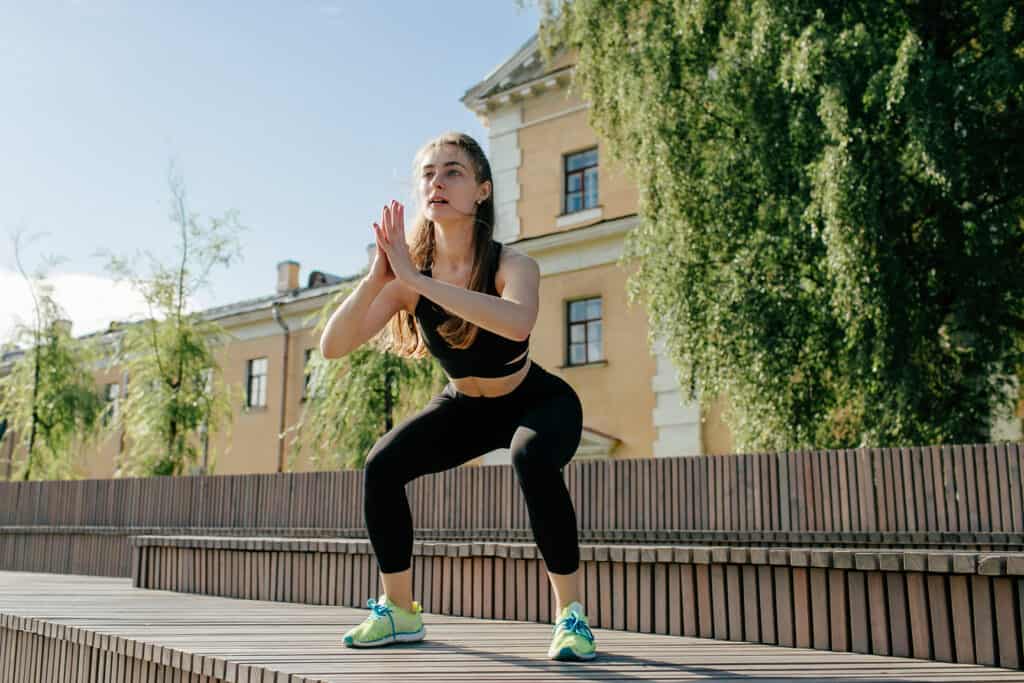
1. Listen to your body
If you want to keep pursuing outdoor sports despite your allergy, it’s generally possible. Medications such as antihistamines can help alleviate the symptoms. However, be sure to listen to your body. Reduce your pace if you are out of breath, avoid peak exertion, generally do not overdo your exertion periods, and constantly adapt your sporting activity to your current lung function. If you have an allergic reaction or shortness of breath, stop exercising.
2. Use the pollen calendar, pollen apps, and pollen forecasts
The pollen calendar gives you information about allergy-causing plants and their blooming times. This way, you can estimate when your allergy is strongest. Pollen apps or pollen forecasts can also help you determine which pollen types are on the move and in which concentrations. On days with exceptionally high pollen counts, you should move your outdoor activities indoors. As an allergy sufferer, you will learn to love rain. 30 minutes is enough to clean the air. So you can exercise afterwards almost without hesitation. Important: The pollen load initially increases at the beginning of a rainstorm.
3. Why timing and location are super important if you want to do sports with allergies
In addition to the apps and calendars that can significantly help you, your location is also crucial. In the countryside, pollen levels are usually higher in the morning than in the evening, while it’s the opposite in the city. If you live in rural areas, it’s best to exercise between 6 p.m. and midnight. In the city, on the other hand, the hours from 4 a.m. to 6 a.m. are ideal for outdoor activities.
4. Take a shower after exercise
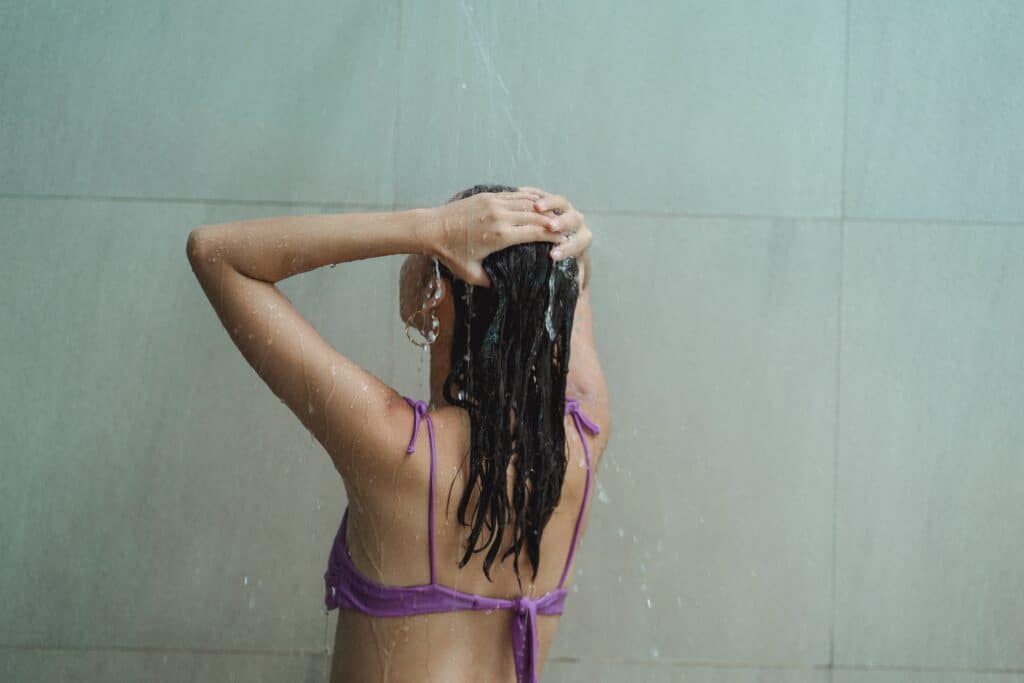
Be sure to shower as an allergy sufferer after outdoor exercise to wash the pollen off your body. If you have been outdoors, you should also wash your hair in the evening to avoid getting pollen on your pillow and breathing it in at night. In general, we recommend that you do not take off or store your street clothes in the bedroom.
5. Avoid abrupt changes between rest and stress
Your respiratory tract can react with severe discomfort during rapid changes. Therefore, take time to warm up properly before exercising. This also applies to the end of your workout. Slowly reduce the load to cool down optimally.
Sport with house dust allergy
If you are allergic to house dust, exercise can also lead to symptoms such as coughing, shortness of breath, and itching, as physical activity speeds up breathing and you inhale more house dust particles. But again, you don’t generally have to avoid exercise with allergies; keep a few things in mind. Exercise best indoors with good ventilation or outdoors to reduce exposure to house dust particles. Also, if you have a dust allergy, it helps to shower regularly to remove dust particles from your skin and clothing. Some studios now even have air purification devices that provide additional support for allergies.
Sports for other allergic reactions
In general, exercise can help improve your allergy and its symptoms, not just allergies from pollen. It also helps preventively in many cases. However, this depends on the individual case and your allergy. In general, you should always pay attention to your body and find out in advance if and what medication you should take and what is the best period to exercise.
Warning: If in doubt, check with your doctor
If allergic asthma is monitored by a doctor and controlled by medication, exercising should not be a problem despite pollen allergies or other allergies. However, it is best to clarify this individually. This way, your doctor can tell you which medication you should take before sports, especially for acute symptoms. The spray, which is used by many, you should always have handy. It helps you to breathe better. In addition, nasal sprays help to keep the nose clear.
Important: Some asthma medications are on the doping list. If you are an allergy sufferer and a competitive athlete, you must check with your sports physician whether there could be a conflict. This way, despite your pollen allergy, nothing stands in the way of your training.



